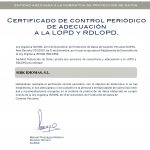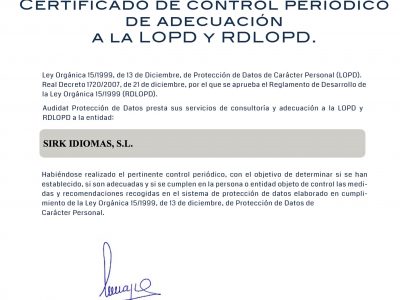WORDS (IN SPANISH) MAKE YOU HAPPIER
WORDS not only COUNT, as the SIRK points out, they also make you happy. In 1969 (is that why they were called “the happy sixties”?), two psychologists from Illinois University framed the Pollyanna hypothesis: a universal “positivity bias” in human communication. This theory has not provoked much debate since then. Bu a huge study published in the Proceedings of the National Academy of Sciences of the United States of America shows they were on the right path (http://www.pnas.org).
But what does it mean? It’s quite simple: words with positive connotations predominate in human communication. What is more interesting is that they are the ones we use the most, the most polysemous words (according to the Royal Academy of the Spanish Language / RAE, plural meanings of a word or linguistic sign). Even more curiously, these are also the words we learn most easily.
The task set out in the study was daunting, as it was necessary to record the amount of happiness conveyed by words in different languages. However, thanks to the Internet and digitalized texts, the work was simplified a great deal. Scientists analyzed ten languages and used 24 types of sources (books, online media, Twitter, websites, film subtitles and song lyrics, etc.). Ten languages (English, Spanish, French, German, Brazilian Portuguese, Korean, Chinese, Russian, Indonesian and Arabic) were studied and the 10,000 most commonly used words were extracted. Then, 50 native speakers rated all these words from 1 to 9: 1 was for words such as “terrorism”, “cancer” and “death”, and 9 was for others such as “love,” “happy” and “laughter”. In the end, a total of 5 million ratings was obtained.
The result is that all languages have a positive bias, but Spanish is the one that wins the day with the highest average of “happy words” on what they call the “hedonometer”. The second and third languages are Portuguese and English. German ranks fourth and French is in fifth position. And Chinese sits in last place.
Literature enthusiasts can consult a website created by the researchers UVM where they can find out what proportion of positive and negative words can be found in literary works such as Crime and Punishment, The Count of Monte Cristo and Moby Dick.
Conclusion: Are Spaniards, or rather Spanish speakers, happier? It is difficult to say scientifically, but first place in terms of “happy words” confirms our legendary joie de vivre and, especially, our way of “sharing by communicating” … on both sides of the Atlantic.
SIRK TRANSLATIONS.










